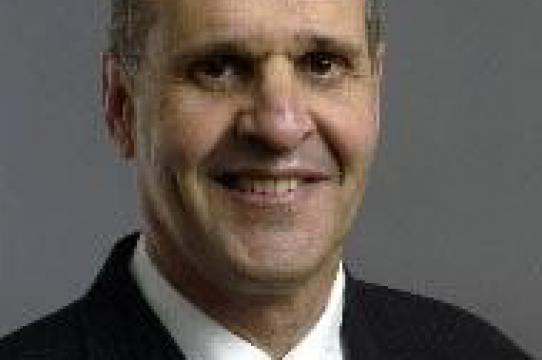Led by Professor and Dean of the Arts David Yager
Digital Arts and New Media MFA students at UCSC will have the opportunity to collaborate with Professor and Dean of the Arts, David Yager, and researchers at the Johns Hopkins Children’s Center on the development of a new project for “The Hospital of the Future: The Living Laboratory. “The Hospital of the Future” is a project of The Innovation and Design Lab (the IDL founded by Professor Yager) and the Department of Pediatrics at Johns Hopkins Medical Institutes (JHMI). In this context Professor Yager and IDL researchers collaborate with research faculty and staff at JHMI on breakthrough thinking for the advancement of new knowledge, products, and processes in the health care. DANM students admitted to the Mechatronics research project group will have the opportunity to participate in this collaboration. Professor Yager’s current work-in-progress DIGITAL ANESTHESIA provides an excellent example of the kind of research that DANM students in the Mechatronics project group will pursue.
The Digital Anesthesia Project is an exploration of the use of virtual reality technology to produce total or partial loss of sensation for patients who may not respond to or are contra-indicated against the use of drug or other substance-induced forms of anesthesia. The Digital Anesthesia project began by observing children with Ataxia-Telangiectasia, or "A-T." This is a progressive, degenerative disease that involves degradation of muscle control and leads ultimately to immobility (e.g., being confined to a wheelchair) along with the hallmark, although harmless, signature feature called, “telangiectasia," which are tiny red "spider" veins seen on the eyes or surface of ears and cheeks of A-T patients when they are exposed to sunlight. [Source] Professor Yager and his collaborators have observed children with A-T and videotaped their experiences at the Johns Hopkins Children’s Center. Through this observation, they have noted that A-T patients’ level of concentration was especially adept at engaging video games. However, these patients were paradoxically challenged with otherwise “ordinary” tasks, like holding a glass of water.
In response, Professor Yager and his team have begun developing specific content appropriate for Digital Anesthesia that will be applied to patients at the Johns Hopkins Children’s Center. This content is both age- and gender-sensitive. Digital Anesthesia prototypes will be tested within the Johns Hopkins Hospital. Understanding that each patient may be challenged to interact with the Digital Anesthesia technologies. Professor Yager and his team explore multiple interface applications tailored to each patient’s capabilities (e.g., ability to interface with parts of the body other than hands and fingers). The Digital Anesthesia system will be tested in a controlled environment, applying prototypes to patients undergoing specific hospital-based procedures that routinely result in pain, with the intention of eliminating or ameliorating pain without the need for drugs or other anesthesia substances.
Professor Yager’s research on Digital Anesthesia will conclude in 2010. DANM students participating in the 2011 Mechatronics collaborative project group will collaborate with Professor Yager on the development and implementation of a new project for the Hospital of the Future: Living Laboratory. Professor Yager’s collaborative design process incorporates both traditional design tools and new methods of careful observation.
Observational research methods include but are not limited to:
- interviews or discussions with experts, professionals or end-users,
- use of role-play,
- creation of mock environments, and
- creation of virtual reality (VR) models.
This working model brings together students and designers, with other researchers – including sociologists, psychologists, physicians, computer scientists, engineers, nurses, residents, fellows, medical students, and others. Prospective students with skill in 3-D modeling and animation, robotics and electronics, industrial design and programming, and an interest in assistive and biomedical technologies and/or public health are encouraged to apply. Please indicate your interest in “Mechatronics” in your application.



